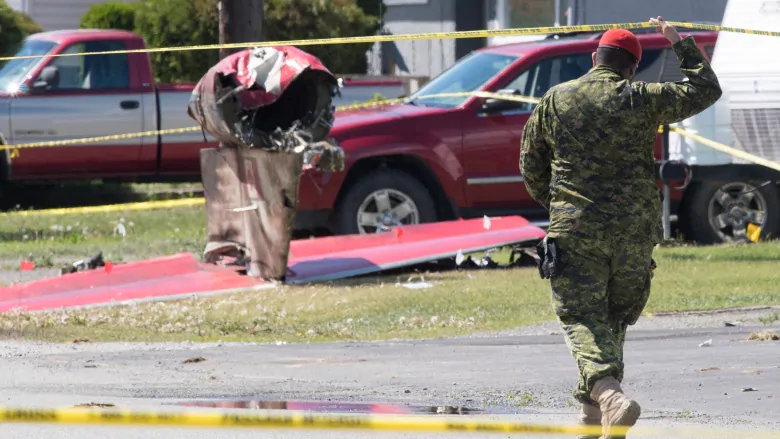Teams of investigators looking for answers in two deadly Canadian military crashes will likely have a preliminary understanding of what went wrong within weeks of beginning their work, according to the colonel overseeing the cases.

Teams of investigators looking for answers in two deadly Canadian military crashes will likely have a preliminary understanding of what went wrong within weeks of beginning their work, according to the colonel overseeing the cases.
But finding an explanation for why things went wrong will be a far more complex task.
“We can generally arrive at what happened, or what went wrong, after about a month,” said Col. John Alexander, the Armed Forces’ director of flight safety.
“The more difficult challenge becomes understanding why.”
Two flight safety investigations run by the Royal Canadian Air Force are looking into two crashes in as many months.
An eight-member team arrived from Ottawa in Kamloops, B.C. on Monday, where a Snowbirds jet crashed into a residential neighbourhood shortly after takeoff. Capt. Jenn Casey, a public affairs officer for the aerobatics team, was killed. The pilot is expected to recover from his injuries.
It happened less than three weeks after a Cyclone helicopter went down in the Ionian Sea on April 29, killing all six people on board. The remains of two Armed Forces members on board have been recovered, while four others are missing and presumed dead.
The investigations will not determine fault or culpability for either crash. They are done solely to prevent future crashes from a flight safety perspective, according to the government.
Alexander could not comment specifically on either investigation but explained how such investigations are done in an interview with CBC News on We

